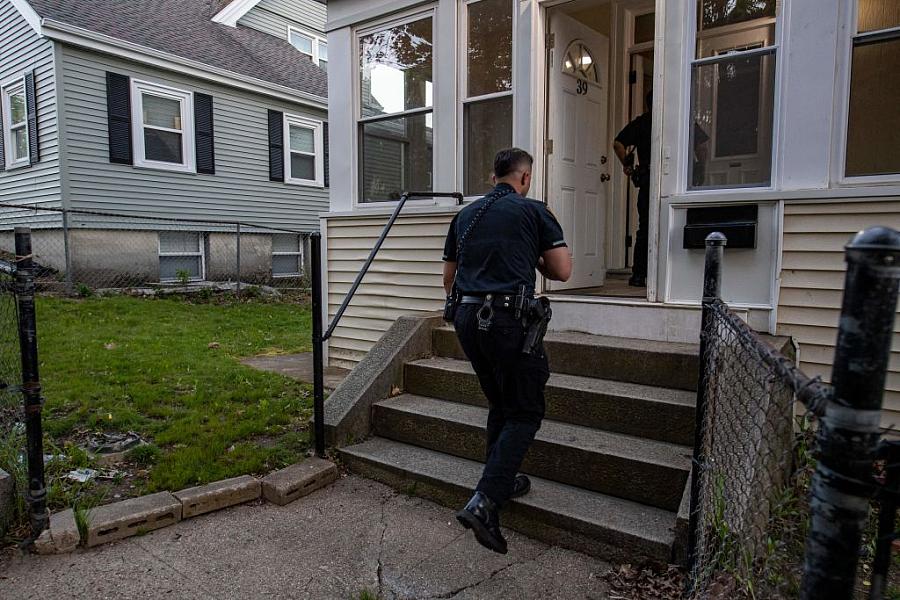Evictions are rising in Connecticut. What does it mean for the mental health of kids?

(Photo by Joseph Prezioso/AFP via Getty Images)
When the federal government instituted a ban on most evictions for nonpayment of rent in the early portions of the pandemic, legal evictions all but halted in Connecticut, court records show. That ban lasted from September 2020 to August 2021.
And the state of Connecticut had additional protections, including a requirement that landlords who filed evictions for nonpayment of rent have a case number with the state’s rental assistance program, called UniteCT.
But even with these protections and federal aid programs in place, many Connecticut residents fell behind on rent.
UniteCT is no longer taking new applications, and the Supreme Court overturned the Centers for Disease Control and Prevention’s eviction moratorium. Since then, evictions have begun to rise. And as inflation and rent prices have spiked, more families are under financial stress.
Studies have shown that people of color and women are disproportionately affected by evictions. This is in part due to women’s lower incomes and gender dynamics with landlords, according to research by Matthew Desmond, principal investigator at Princeton’s Eviction Lab.
Children can also play a role, Desmond writes.
The state may more closely scrutinize apartments with children because of issues such as lead poisoning, and child protective services might be called if the home isn’t safe. Children, particularly when there are too many of them in one home, can also be harder on apartments, Desmond says.
And through the pandemic, families with children were more vulnerable to eviction, according to a study from the Center on Budget and Policy Priorities.
Studies have also shown that housing instability and evictions can be traumatic, interrupting many facets of life. An eviction can disrupt a child’s schooling, puts a family at increased risk of homelessness, and is associated with poor health outcomes.
It can also lead to longer-term consequences such as depression and difficulty finding housing in the future.
Our project, under the auspices of the Center for Health Journalism's 2022 National Fellowship and its Kristy Hammam Fund for Health Journalism, will specifically look at the effects of that trauma on children whose families experience eviction. We will primarily focus on the mental health effects of eviction in Connecticut, where segregation is high and two of the state’s cities are on the Eviction Lab’s list of the top evicting cities in the country.
Hartford, Connecticut’s capital, is number 29 on the list with 5.73% of renting households experiencing an eviction each year, and New Haven is 69 at 4.05%.
We’ll aim to publish a series of stories on the topic, including information about how to access eviction prevention and mental health services. The series will address a few aspects of the trauma of evictions including the increased risk of homelessness, long-term outcomes, why families with children are more likely to be evicted, and interruptions in accessing school-based services.
Our project at the Connecticut Mirror will aim to focus on the voices of people most affected by eviction – children and families who have experienced housing instability.

